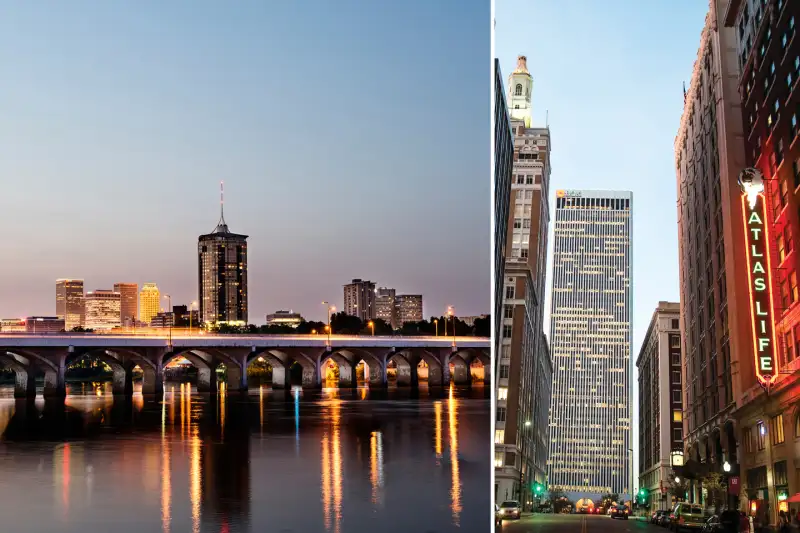Tulsa may have been dubbed the “oil capital of the world” for much of the 21st century, but in 2024, Oklahoma’s second-largest city is an economic force to be reckoned with.

Almost overnight, Tulsa has established itself as a launching pad for businesses in the health care, transportation and aerospace manufacturing industries. In the throes of the COVID-19 pandemic, the city became a stomping ground for telecommuters, thanks, in part, to a program offering $10,000 to remote workers who relocated to Tulsa. And just a few months ago, the federal government named Tulsa one of the 31 U.S. cities newly designated as a “tech hub,” thanks to the city’s potential for even stronger growth.
Don’t let all the buzz about this city scare you away: Tulsa is still incredibly affordable, with a median home listing price of around $270,000. Newcomers join a community with a thriving culture, award-winning parks and a lively downtown with art walks, yoga, food trucks, outdoor concerts and more. In the shadow of the 1921 Tulsa Race Massacre, the city has made significant strides towards becoming a more inclusive city: Its new redevelopment plan, “Our Legacy, Our Community: A Renewed Vision for North Tulsa,” recently won an Advancing Diversity and Social Change award from the American Planning Association.




